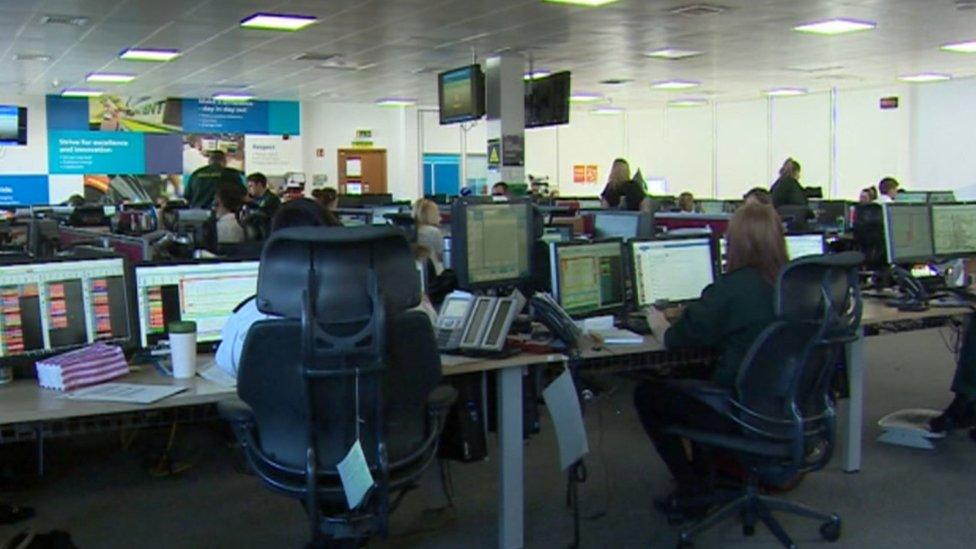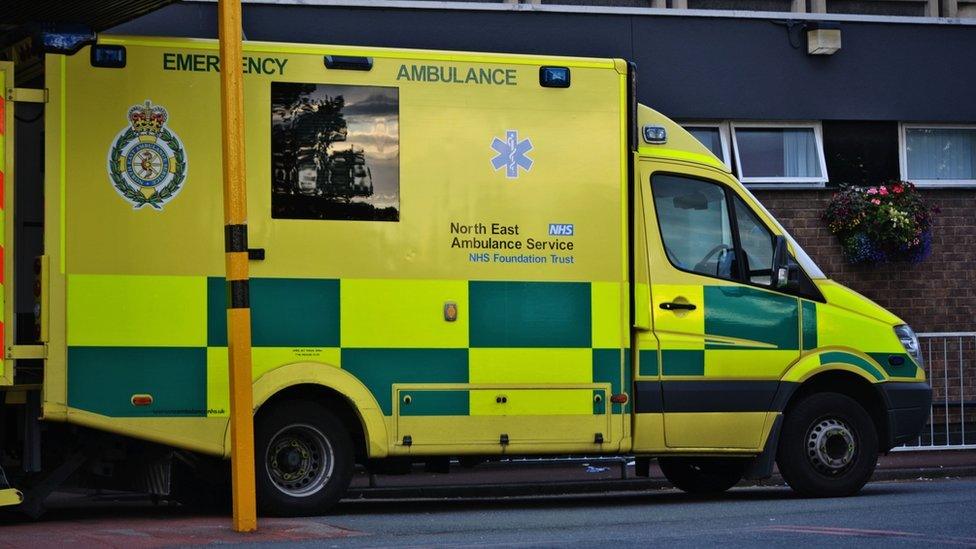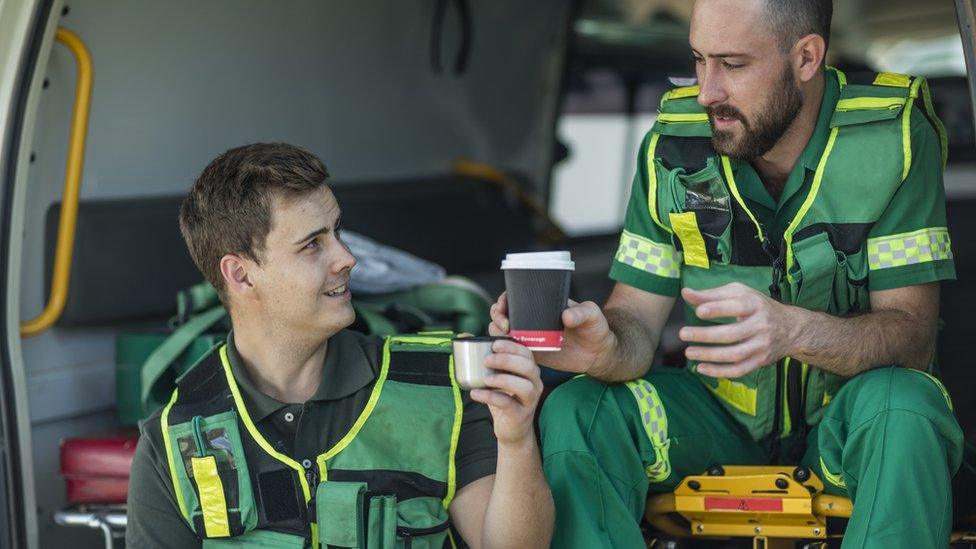North East ambulance staff lacked critical medicines, CQC finds
- Published

Inspectors were told that crews often responded to calls "without the medicines they needed"
Ambulance crews in the North East frequently responded to emergencies without access to life-saving drugs, a damning inspection report has found.
The study of North East Ambulance Service NHS Trust (NEAS) concluded patients were potentially put at risk by the poor management of medicines.
The Care Quality Commission (CQC) found a deterioration of services and rated NEAS's urgent care as "inadequate".
In response, NEAS said it had faced a year of "unprecedented pressures".
The damaging assessment follows the launch of a full independent NHS review into numerous "tragic failings" involving patients.
Announcing the review, the then health secretary Sajid Javid said he was "deeply concerned" about claims NEAS had covered up mistakes.
Whistleblowers have told Newsnight multiple deaths were not investigated properly because information was not always provided to coroners and families.
The trust has now been issued with a warning notice following the unannounced CQC inspection in September.
Inspectors focussed on the trust's emergency care, its emergency operations centre (EOC), the NHS 111 service and its leadership.
The CQC's ratings illustrate a comprehensive decline in standards since its previous inspection in 2018:
NEAS Trust - dropped from good to requires improvement
Emergency and urgent care - fell from good to inadequate
NHS 111 service - down from good to requires improvement
EOC - dropped from good to requires improvement
Well-led rating downgraded to inadequate
Ambulance crews frequently operated without enough "standard" medicines such as morphine and seizure medication, inspectors said.
In addition, there were discrepancies in the number of medicines and mislabelled bags of medicines found in ambulances, while "numerous incidents" were reported of missing medicines that were unaccounted for.

Analysis
Sima Kotecha, UK Editor, Newsnight
In recent months, North East Ambulance Service - which serves nearly three million people - has faced allegations of covering up mistakes.
Some of the CQC report's findings resonate with what we've been told by whistleblowers - from incidents not being investigated properly to staff not always being treated with respect.
There is no doubt the trust is under immense pressure - and now all eyes turn to the independent review from former NHS chief Dame Marianne Griffiths.
It was initiated after concerns were raised in the media about information not being shared, and will focus on the deaths of five people.
It's expected to be published this month, and isn't likely to make easy reading for the families.
A damning report from her would be a double-whammy for a trust in trouble, desperately trying to move on from what it sees as a "historical issue".
In a statement, it told Newsnight it recognises there is more to do and its processes which delayed the timely disclosure of reports and documents to coroners have been fully revised.
You can watch more on the story on Newsnight on BBC Two on Wednesday at 22:30 GMT and on BBC iPlayer.

Sarah Dransfield, CQC's deputy director of operations in the north, said: "When we inspected NEAS NHS Foundation Trust we found a deterioration in the services being provided, especially in urgent and emergency care where this had potential for people to be placed at risk of harm.
"It was particularly concerning that staff didn't always have access to critical medicines needed to treat patients and some crews didn't have time to complete vehicle medicine checks, resulting in treatment delays."
In a staff survey held as part of the inspection, workers said they felt under pressure and did not feel supported or valued.
Some said they felt uneasy about raising concerns for fear of blame or reprisal.
The report was also critical of the trust's leadership, highlighting a lack of effective systems to seek and act on feedback from workers.
"We were concerned the trust was not always thoroughly investigating incidents and may have made decisions based on limited information, reducing the ability to identify learning and prevent reoccurrence," Ms Dransfield said.

NEAS's 111 service did not have enough staff in post to provide care at the right times, the report said
At the EOC, inspectors found inadequate numbers of call handlers to manage the volume of 111 non-emergency calls.
From July 2021 to June 2022, the average ring time was fifty times longer than the national target - 1,007 seconds against a target of 20 seconds - although that fell to 115 seconds in August.
The review also found 38% of calls were abandoned, way above the national target of 3%.
Since then a recruitment drive has increased staffing levels.
The CQC did conclude that staff acted in a "respectful and considerate way" with patients and collaborated well to prioritise and provide care in the most critical cases.
"We know they have taken our concerns seriously and have put in measures to address our findings," Ms Dransfield said.
Responding to the report, Helen Ray, NEAS chief executive, said: "Over the last 12 months the ambulance service and the NHS as a whole has faced unprecedented pressures.
"Providing the best possible care to all our patients remains our top priority. We are all committed to making improvements until we and the CQC are confident that the concerns raised have been fully addressed."
She said "swift action" had been taken and the NEAS would "ensure effective systems" are in place for patient safety, but acknowledged there was still "more to do".

Follow BBC North East & Cumbria on Twitter, external, Facebook, external and Instagram, external. Send your story ideas to northeastandcumbria@bbc.co.uk, external.
Related topics
- Published14 June 2022

- Published8 June 2022

- Published7 June 2022

- Published21 December 2021
